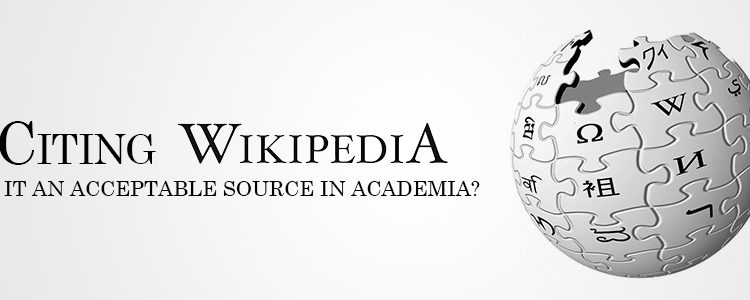Wikipedia: Is It an Acceptable Source for an Academic Paper?

Twenty years ago the internet was a joke, dominated by “the uninformed, the immature, the smug, the untalented, the repetitious, the pathetic, the hostile, the deluded, the self-righteous and the shrill,” in the words of one writer. No more. All of these types may still be found, but they no longer dominate the world of cyberspace. Today the internet is an essential source of information from everything from phone numbers to academic articles.
Wikipedia: The Source of All Knowledge?
Nevertheless, some web sources are more reliable than others, and nothing illustrates this better than the phenomenal growth of Wikipedia, an online encyclopedia written by unpaid, anonymous volunteers. Wikipedia aspires to be a source of information on everything, literally everything, from nuclear physics to the latest movies. It is self-correcting, with readers posting comments on inaccurate content and gradually clearing up mistakes. So pervasive and convenient are Wiki articles that some academics have begun citing Wikipedia as references. This is a bad idea.
Shortcomings of Wikipedia
As an avid user of Wikipedia I find its articles to vary greatly in quality. Some are scholarly, impartial, and well researched. Others are sloppy, superficial, and full of errors. Well, what do you expect for nothing? I am fine with using Wikipedia to check on the atomic weight Cesium or to get a quick overview of electron spin resonance, but that is about all. I have found chemical equations listed that were wrong—the formula for oxygen balance, for example, does not include halogens, although it should. The self-correcting aspect of Wikipedia works better in theory than in practice. More than a year ago I saw a mistake in the biography of a recent American president, George H. W. Bush. I signed on to Wikipedia and posted a correction to an article, writing up the revised paragraph and citing references to support my correction. Nothing happened. The mistake is still there.
Valid Uses of Wikipedia
Wikipedia does have its uses for an academic researcher. It often provides a good starting point for further research, particularly on recent events and publications. Wikipedia is not supposed to contain original research, and its references and citations often excellent can give a researcher a head start for digging deeper. By all means use Wikipedia. But no citing Wikipedia in research. And take everything you read there with a large dash of salt.
For an amusing look at the early days of the internet see Dave Barry’s “Dave Barry in Cyberspace,” Ballantine Books, 1996.









